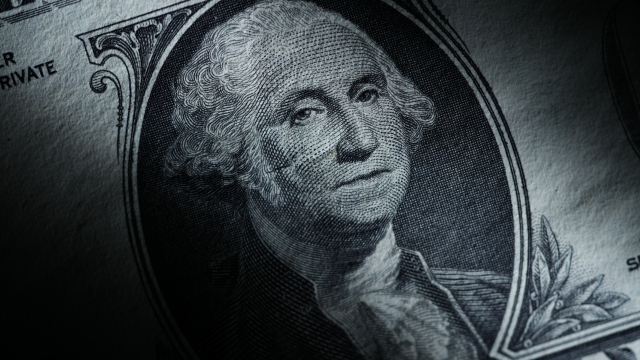Consumers are still better off than they were pre-pandemic, with Americans holding more money in their bank accounts than they did before the pandemic — but bank balances are at their lowest levels in nearly three years.
That’s according to a new analysis from the JP Morgan Chase Institute, which studied accounts from nine million Chase customers and found Americans across all incomes have nearly 10% to 15% more in their checking and savings accounts than they did pre-pandemic.
"Americans really were able to squirrel some money away. By and large, a lot of that was because in some cases their opportunities to spend were diminished," said Mark Hamrick, a senior economic analyst at Bankrate.
But since inflation crept up to it's 9% peak last June, those savings have been rapidly depleting, with median account balances dropping as much as 41% since their peak in April 2021.
"We think about the high cost of things like food, shelter and energy. Yes, gasoline prices would stabilize, but electricity is still higher ... Most things that most Americans still have to pay for, those prices are still high," said Hamrick.
Economists have said that despite record inflation in 2022, higher savings account balances staved off the threat of a recession. And the University of Michigan's Consumer Confidence survey shows optimism is on the up-and-up as inflation slows.
Tamara Charm, a partner at McKinsey & Company, says it’s important that consumers are still spending money, albeit with some changes.
SEE MORE: Americans need $233K salary to feel financially secure
"They're getting more selective about the way they spend. They're trading down for some things and they're still splurging for other things," said Charm.
While JP Morgan's data shows most Americans in upper and middle income levels are better off financially compared to pre-pandemic times, surveys show people are still stressed about finances even as inflation slowed to 3% in June, the 12th month in a row of declines.
Earlier this month, Scripps News reported that Americans say they would need a salary of $233,000 per year to feel financially stable.
Hamrick acknowledges the economic outlook is still uncertain.
"Bankrate put that those odds of recession over the next year are basically 6 in 10. That's not 100%, but that's the high risk," said Hamrick.
And it’s getting tougher for Americans to rebuild their pandemic nest eggs. The government said in May that Americans were only saving 4.6% of their disposable income compared to an all-time high of 33.80% in April of 2020.
Savings vary depending on income, too. The Fed says in 2022, the top half of earners had $1.35 trillion in excess savings, nearly three times as much as the bottom half ($350 billion).
Trending stories at Scrippsnews.com




